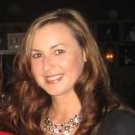Measuring for Career Success
Lord Kelvin, a mathematical physicist, once said: “When you can measure what you are speaking about, and express it in numbers, you know something about it; but when you cannot measure it when you cannot express it in numbers, your knowledge is of a meager and unsatisfactory kind.” He died in 1907, and what he said then is still true today.
When determining a goal, a project, a simple outcome, measurements provide the evidence you are getting what you want. For instance, what do cheesecake, railroads, and running shoes have in common? All three require meaningful measurements to make sure the results are successful. Creating measures is usually the least attractive step in achieving goals; instead, we’d rather be acting than analyzing. Yet, to have the best chance for success, one needs to prepare; good preparation means you create specific measurements for each step along the way. These ensure you end up where you plan to end up.
If you want a tasty cheesecake, you need specific amounts of particular ingredients baked at a certain temperature. Railroad tracks, when switching, need to be precisely aligned or the cars derail. When training for a race, a runner needs a plan with checkpoints to build up stamina slowly and safely to run the race. These measurements not only lead us to the desired result or completion, but they also enable us to celebrate our success along the way.
Step One – Define the Outcome
The first step is to visualize and define what your outcome will be. A simple example would be determining what would be different if you lost 20 pounds. Perhaps you would expect to be more energetic, wear smaller size clothes, lowered blood pressure, eating healthier balanced meals, and increased stamina.
What are at least five things that you would expect to see when you reach your desired goal?
Step Two – Determine Facts Needed
Now that you know what you expect to see, the second step is deciding what information you need to tell you if you are progressing toward your goal. Not all measurements are created equal. In other words, what would be useful, energizing, and specific to you and your success?
For this example, it would be useful to know the number of pounds lost each week, the number of inches reduced, and the caloric intakes each day for determining progress against your weight goal.
However, some measurements are better than others. Comparing your results against another’s weight loss rate would not be useful because everyone’s body type and metabolism are different. Compete against yourself, not others.
Ask yourself, what information do I need to show me I’m on the right track?
Third Step – On Track or Course Correction Needed
The third step is to create some specific measurements (they don’t have to be lengthy or complicated—keep them simple), giving you the information you need to check for movement either forward or backward and fine-tuning where necessary. Based on the outcome you want, you should first decide what you would consider evidence that you’re moving towards your intended results.
With the above example, to know the number of pounds lost, you would weigh yourself the same time on the same day of the week weekly. You would use a tape measure to record the inches for several areas of your body. Finally, you would have a food journal with the number of calories consumed to compare against the total number of calories you allow yourself each day.
Other goals may not be quite so straight forward. So here’s another example.
If you want to become a better listener, you might keep track of the times.
- you listen to someone else and are present and focused on the conversation
- your mind wanders when having a conversation
- when that little voice in your head is talking in anticipation of what the other person will say next, which is drowning out what the other person is currently saying
- you interrupt another during a conversation
- you were ‘waiting to talk.’
Those measurements would give you the information you need to chart your progress in changing your old habit of listening.
What measurements would you consider for the goals you set?
Measurements – Evidence of Your Progress
At first glance, measurements can seem rather dull, but when it gives you clear evidence on the changes happening, man, that can be energizing! They will answer essential questions: Are you getting the results you want? What’s working? What’s not working?
Measurements remind you of what you are or aren’t doing so you can keep on your path to wildly successful outcomes. They allow you to feel good about what you’re doing now rather than waiting for the final results.



0 Comments